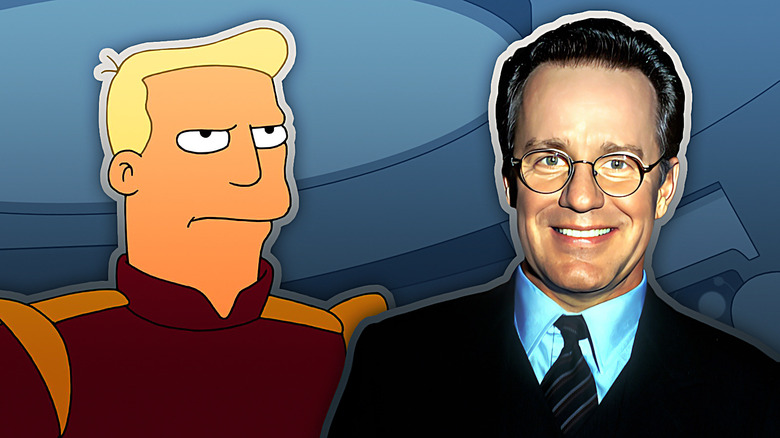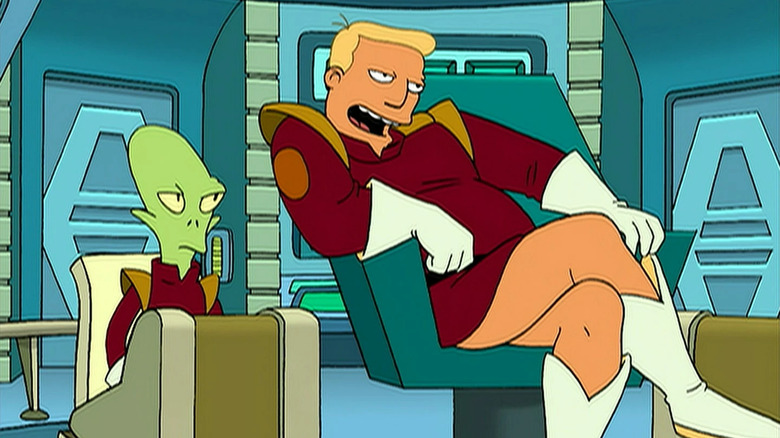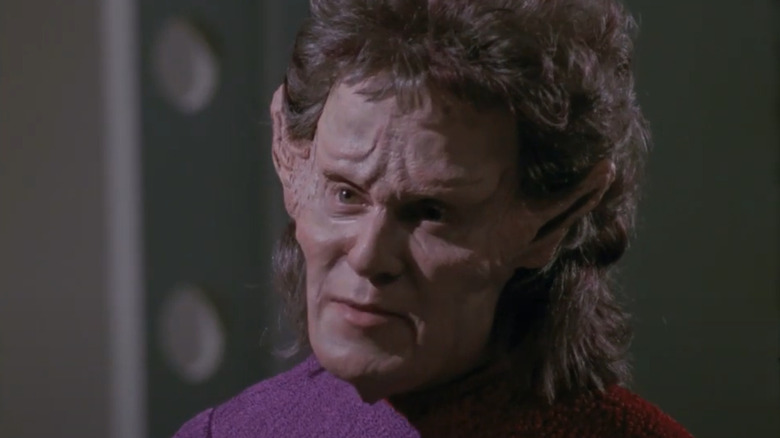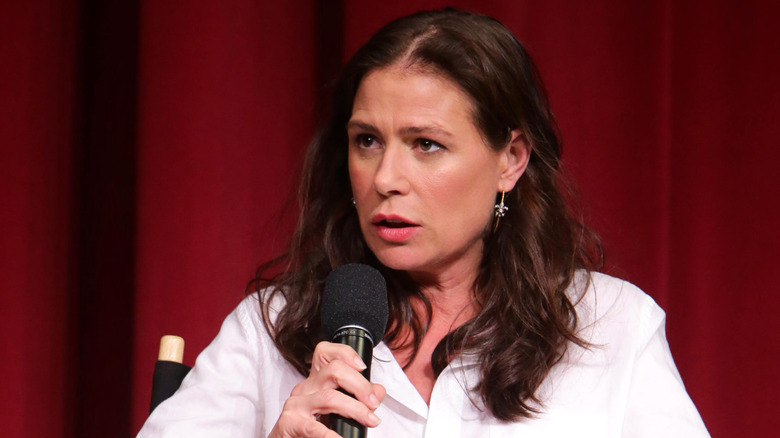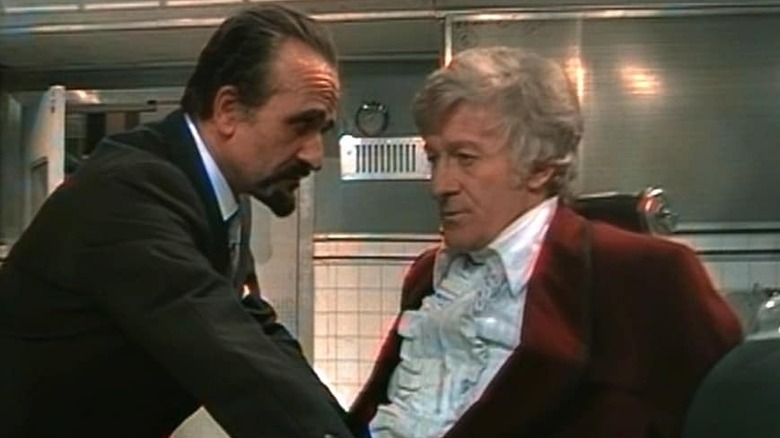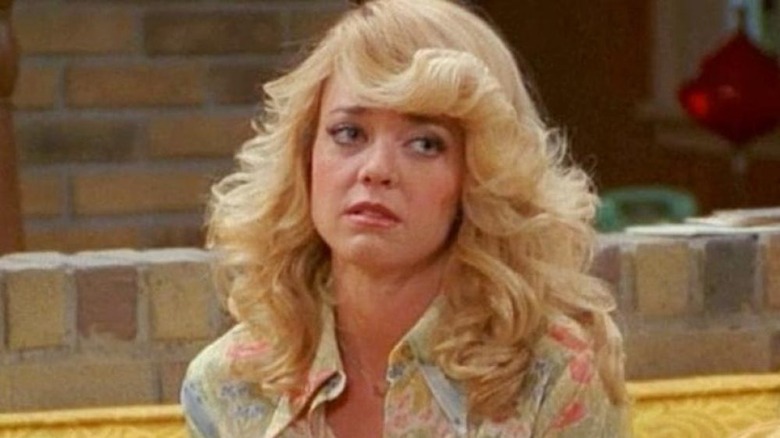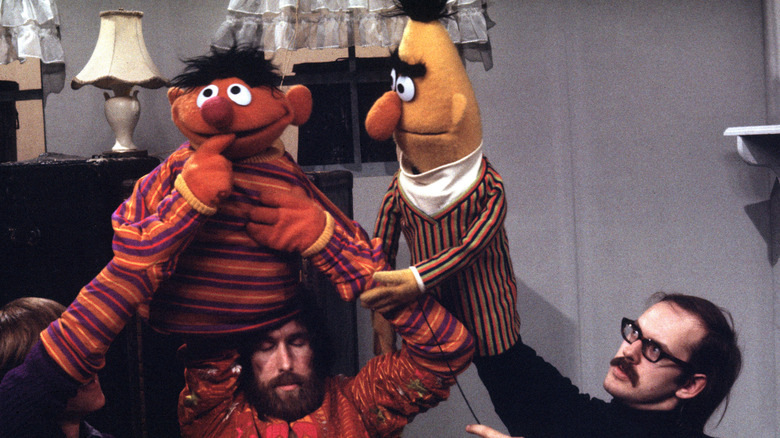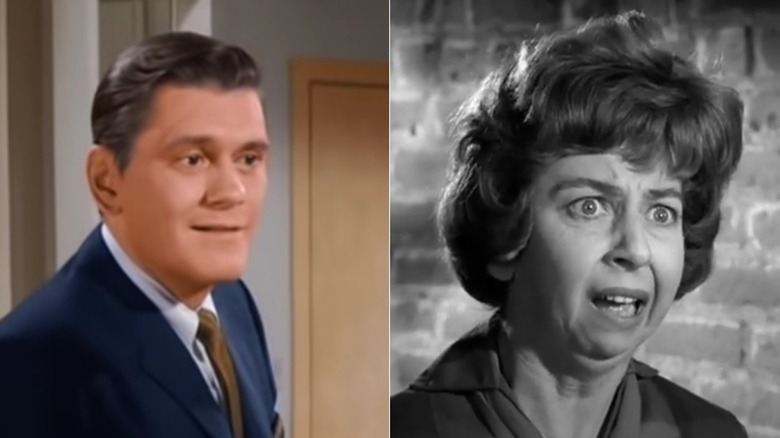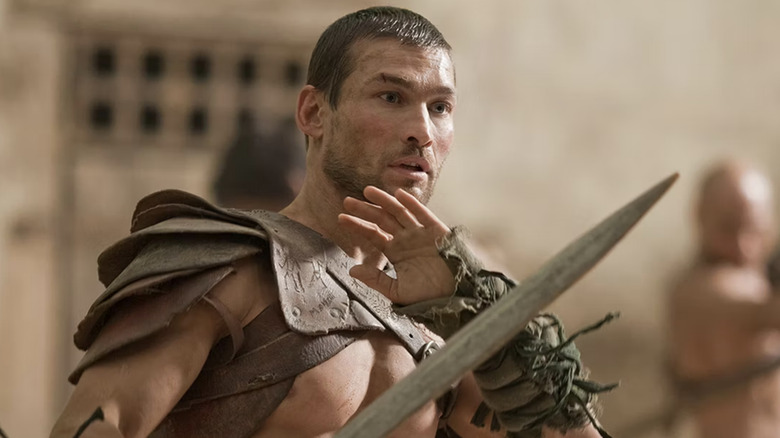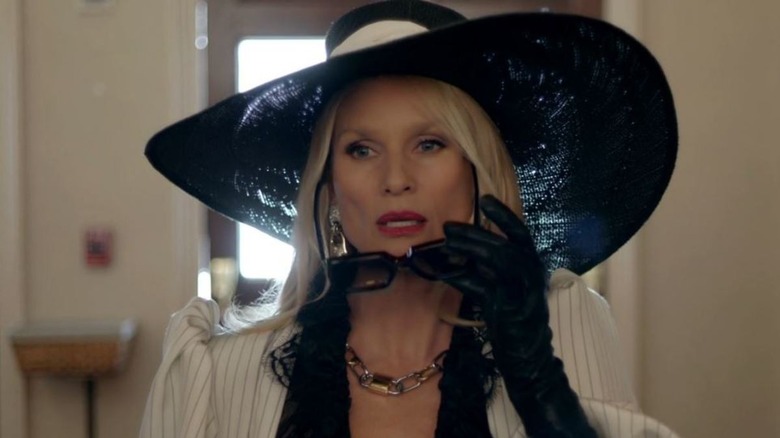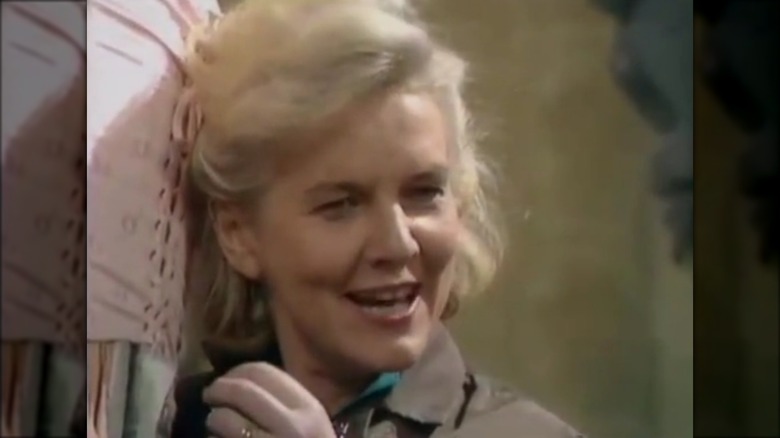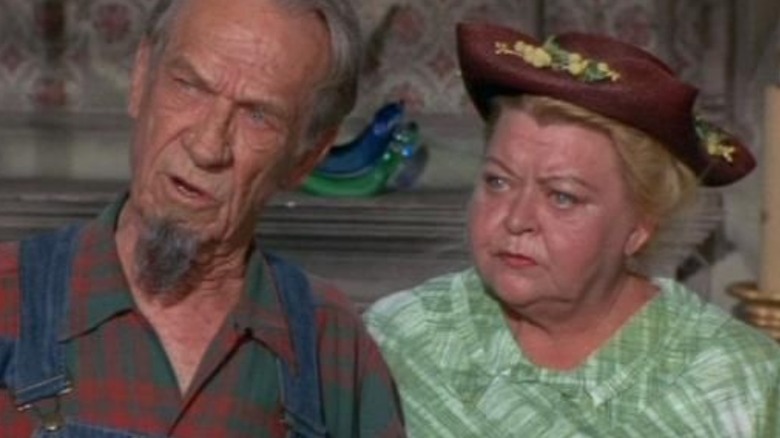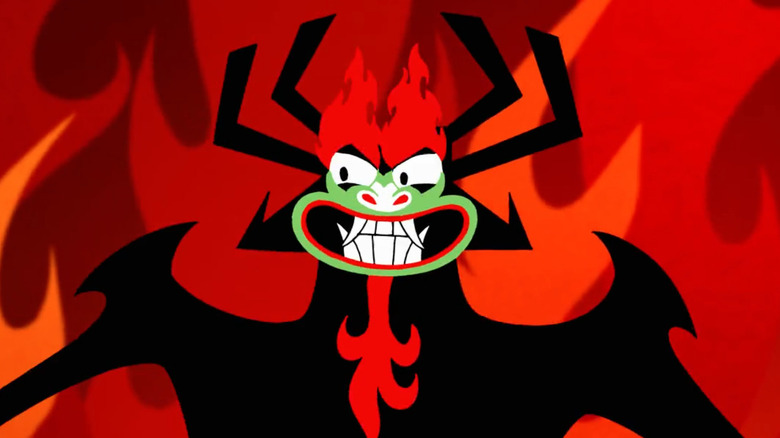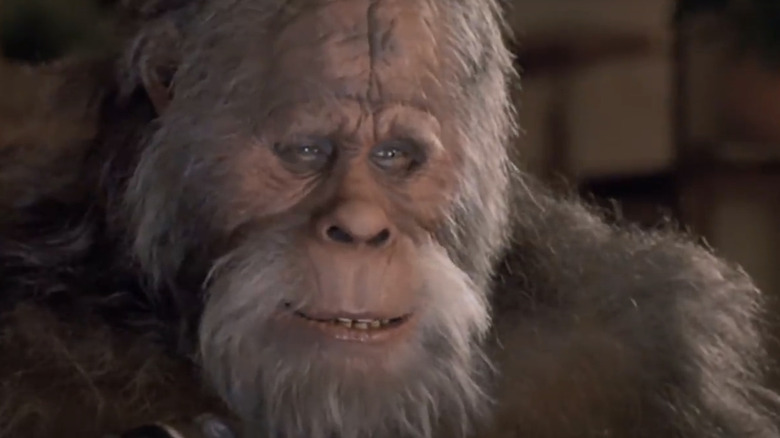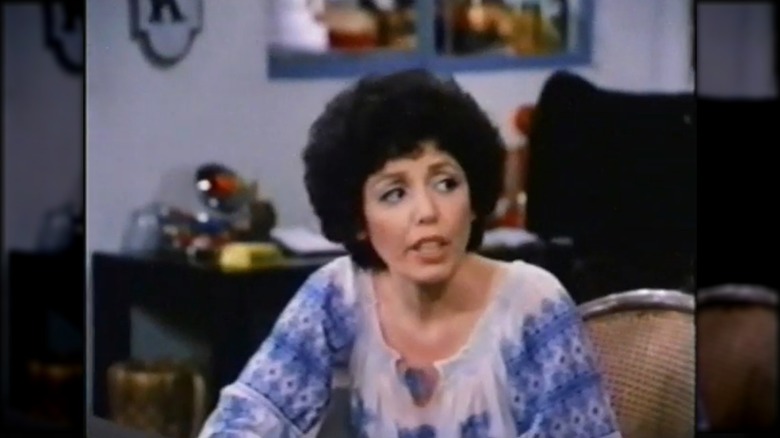TV Roles That Were Recast For Tragic Reasons
The following article includes frank discussion of mental illness, addiction, and suicide.
These days it's fairly common for characters on even the biggest shows to come and go. So when an actor wants to say goodbye to a series, their character is often written out or even killed off. But sometimes, the show doesn't want to lose a great character just because the actor playing them has to leave, and a new actor is brought in to take over. There are many reasons that iconic TV characters have to be recast: It might be because of a salary dispute, a scheduling conflict, or even a fight with producers.
Regrettably, though, some of the most unexpected TV recasts have come as the result of bitter tragedy. Whether because of illness, death, or personal struggle, there have been times when a key actor was lost due to awful circumstances and a replacement was needed. Some you may be aware of, others you may never have known about — in some cases, the reasons for these recastings were kept private for years.
Zapp Brannigan on Futurama
He may not be in every episode, but Zapp Brannigan might be one of the most popular characters on "Futurama," the animated series that just won't die. The brash, Captain Kirk-caricature has been played by Billy West — who also voices Philip Fry and Professor Farnsworth — since the show's inception in 1990. But West wasn't actually the first person cast in the role.
Originally, the part of Brannigan was created specifically for "Saturday Night Live" alum Phil Hartman, who'd played similar characters on Matt Groening's other show, "The Simpsons," like blustery actor Troy McClure or bumbling lawyer Lionel Hutz. Before "Futurama" started recording the voices for its first episodes, though, Hartman was killed by his wife in a horrific murder-suicide that rocked Hollywood. In the aftermath, his character Bill McNeil on the live-action sitcom "Newsradio" was given an emotional send-off, but "Futurama" hadn't hit the airwaves yet, so Groening looked to West to fill Hartman's shoes. While there have long been rumors about Hartman having recorded samples as Brannigan before production, no such tape has ever materialized.
If you or someone you know is struggling or in crisis, help is available. Call or text 988 or chat 988lifeline.org
Kivas Fajo on Star Trek: The Next Generation
The "Star Trek" franchise has its share of recasts for a variety of reasons, whether due to contract disputes or scheduling conflicts. But more than 30 years ago the franchise was forced to find a new actor to play the villain in a Season 3 episode of "Star Trek: The Next Generation" for one of the most tragic reasons imaginable.
It was for the 1990 episode "The Most Toys" that British actor David Rappaport was chosen to play Kivas Fajo, an unscrupulous cosmic collector who kidnaps the android Commander Data (Brent Spiner) to add him to his treasure trove. Rappaport got his start in U.K. television and later appeared in films like "Time Bandits" and small-screen American hits like "L.A. Law." He even had a show of his own, "The Wizard," which ran for two years in the late 1980s.
Unfortunately, during production on "The Most Toys," Rappaport was forced to bow midway through production out after he attempted to take his own life. Saul Rubinek stepped in to play Fajo, but the cast and crew received the worst imaginable news three days before the episode premiered, as Rappaport died by suicide on May 2, 1990. Rappaport's unfinished work as Fajo was later released on the "The Next Generation" Blu-ray release in 2013.
If you or someone you know is struggling or in crisis, help is available. Call or text 988 or chat 988lifeline.org
Sarah Braverman on Parenthood (2010)
Phil Hartman's "Newsradio" co-star Maura Tierney became a star on "ER" in the 2000s, and in 2010 she was cast in "Parenthood," a small-screen remake of the 1989 Steve Martin comedy of the same name. In the series pilot, Tierney played Sarah Braverman, who with her two children moves back in with her parents after her divorce. The pilot episode was strong enough to get the series picked up, but when it debuted on screens that fall, Tierney was nowhere to be found, replaced by "Gilmore Girls" star Lauren Graham.
At the time, The Hollywood Reporter reported Tierney dropped out of the series after filming the pilot when she was diagnosed with breast cancer. With extensive life-saving treatment needed, Tierney couldn't commit to the series and exited the show to focus on her health. All of her scenes in that pilot episode were removed, and Graham came aboard to play Sarah Braverman.
The Doctor and the Master on Doctor Who
The long-running British icon "Doctor Who" owes its longevity to the concept of regeneration, where the series' lead — an immortal alien who travels time and space — is reborn after death in a new body, played by a new actor. While the first regeneration of original series star William Hartnell was necessitated by the aging actor's poor health, the exit of the show's Third Doctor, Jon Pertwee, was even more heartbreaking.
At the time, many might have simply assumed that Pertwee said goodbye because he wanted to move on, as was the case with his predecessor Patrick Troughton, the Second Doctor. But years later, Pertwee was interviewed about his departure and the truth was far more saddening. According to Pertwee, it was the death of Roger Delgado, who played the Master, that made him reevaluate his time on the show. The actor died in a road accident in Turkey while shooting a German-French TV series, "La cloche tibétaine," in 1973. "Roger had been killed, and I was very upset about that," Pertwee said in a featurette. "I wouldn't want to really work with any other actor playing the Master."
The end result, of course, was the arrival of future legend Tom Baker in the role of the Fourth Doctor. The Master, meanwhile, was recast too, with Peter Pratt and Geoffrey Beavers playing the character in his next two appearances before being replaced by Anthony Ainley for the rest of the 1980s.
Laurie Forman on That '70s Show
Recasting a principal cast member isn't uncommon in sitcoms, where a show's lighthearted nature makes recastings a little easier for audiences to digest. It's happened on classics like "The Fresh Prince of Bel-Air," "Roseanne," and "My Wife and Kids," and in the 1990s, smash hit "That '70s Show" did it too. Series co-star Lisa Robin Kelly, who played Topher Grace's on-screen sister Laurie Forman, disappeared in its fourth season, returning for a handful of episodes in Season 5 before being entirely recast with Christina Moore.
For many years, Kelly remained mum as to why she'd left the show, as well as her mysterious absence in Season 4. In 2012, however, Kelly came clean in an interview with ABC News, acknowledging that the reason for her sudden exit was a struggle with substance abuse, which began with a personal tragedy. "I had lost a baby," she said, revealing that she'd suffered a miscarriage while working on "That '70s Show." "As a result of that, I lost it. I lost everything and I was abusing alcohol." Just a year after that interview, though, Kelly died in her sleep just days after voluntarily checking herself into a rehab facility.
If you or anyone you know needs help with addiction issues, help is available. Visit the Substance Abuse and Mental Health Services Administration website or contact SAMHSA's National Helpline at 1-800-662-HELP (4357).
Ernie, Guy Smiley, and Kermit the Frog on Sesame Street
It's hard to calculate the impact of Jim Henson on Hollywood. The celebrated puppeteer and voice actor was responsible for iconic characters on screens big and small, from "The Muppets" and "Fraggle Rock" to "Labyrinth" and "The Dark Crystal." When Henson died, however, the beloved children's TV series "Sesame Street" may have been dealt the hardest blow. Because by 1990, the series — a daily institution for children and parents around the world — had been running since 1969 with Henson serving as a writer, director, producer, puppet performer, animator, and voice actor.
While Henson had created most of the puppet characters on the show, including Big Bird, he only voiced a few. Nevertheless, they were important characters that included Burt's best friend Ernie, TV newsman Guy Smiley, and of course, Kermit the Frog, who made regular appearances on the show. So when Henson died in 1990, the show had no choice but to recast those characters. Steve Whitmire took over both Ernie and Kermit, while Smiley was all but retired from the show until puppeteer Eric Jacobson inherited the part beginning in 2005.
Darrin and Mrs. Kravitz on Bewitched
The 1960s sitcom "Bewitched" is famous for recasting its lead actor halfway through the show's run, with Dick Sargent mysteriously replacing Dick York as Darrin Stephens for its last three seasons. But Sargent's arrival wasn't signaled by a contract dispute: No, the real reason Dick York left "Bewitched" was due to tragic circumstances: His ailing health. Even during production of the series, steps were taken to ease York's chronic back problems, but it eventually became too much, and in came Sargent for Season 6 following a single-episode guest appearance in rival series "I Dream of Jeannie."
Darrin wasn't the only character to get replaced; obnoxious neighbor Mrs. Kravitz had to be recast after Season 3, too, and the reason was even more devastating. Original actor Alice Pearce had been diagnosed with cancer before the show even began filming, and she succumbed to the disease just two years later. Her replacement, Sandra Gould, held down the role for the rest of the series, and even returned as Mrs. Kravitz for the short-lived spin-off, "Tabitha."
Spartacus in Spartacus: Blood and Sand
After the success of HBO's "Rome," rival network Starz created "Spartacus: Blood and Sand," from writer-director Steven S. DeKnight (whose later work included Netflix's "Daredevil" and "Pacific Rim: Uprising"). The series, which co-starred Lucy Lawless and Manu Bennett, was a big-budget historical epic centered on the infamous Roman gladiator who led a slave revolt against the Roman Empire. Andy Whitfield filled the title role, but after the show's first season — which received strong reviews from audiences — Whitfield had to leave the series following a cancer diagnosis.
Though the series went forward with a prequel, "Spartacus: Gods of the Arena," to avoid recasting Spartacus, Whitfield tragically never recovered. He died in September 2011, leaving Starz with little choice but to find a new actor to play Spartacus in a proper follow-up season. That actor was Liam McIntyre, who picked up the sword and sandals and led the show's next outing, "Spartacus: Vengeance," in 2012. A long-awaited revival of the series was announced in 2023, with DeKnight returning, but it's unknown who might play Spartacus this time around or if the character will appear at all.
Alexis Carrington on Dynasty (2017)
Primetime soap opera "Dynasty" got a new coat of paint in 2017's reboot, with a broad ensemble cast that included Elizabeth Gillies, Rafael de la Fuente, Robert Christopher Riley, Sam Adegoke, and Nicolette Sheridan. Sheridan starred as Alexis Carrington, the ex-wife of billionaire Blake Carrington (Grant Show).
When Alexis turned up again Season 3, though, she was suddenly played by series star Elizabeth Gillies, who ordinarily played Alexis' daughter Fallon. Sheridan had stepped away from the series, and she explained her departure in a statement, saying that while the show was a highlight of her career, she had more important things to take care of. "The chance to spend precious time with my terminally ill mother is more important to me right now," she explained (via ET). Her mother, a former actor, had recently been diagnosed with Stage 4 breast cancer.
"She's my hero," she told Hollywood.com. "I feel blessed that I'm able to be here in Los Angeles with her and be by her side at this part of her journey." Elizabeth Gillies, meanwhile, was put under heavy makeup in a storyline that saw Alexis recovering from extensive plastic surgery, and she was replaced permanently by Elaine Hendrix for Seasons 4 and beyond.
Blanche Hunt on Coronation Street
If you've never heard of "Coronation Street" you're clearly not from the U.K. As beloved as "Doctor Who" and even older than the sci-fi classic, "Coronation Street" is a British soap opera that's been running since 1960, producing more than 10,000 episodes. While many characters through the years have been recast for various reasons, there's only one that was truly tragic: family matriarch Blanche Hunt, mother of Deirdre (Anne Kirkbride).
Played by Patricia Cutts when she made her first appearance, Blanche Hunt showed up just twice before the actor died in 1974. Cutts was found dead in her Chelsea, London flat. Ultimately, it was determined that Cutts, who was 48 at the time of her death, had ended her own life.
As for Blanche Hunt, she continued on the show, played for the next three-plus decades by Maggie Jones, who made over 800 appearances on the series. When Jones passed away in 2009 at the age of 75, Hunt was written off the show, with her death coming off-screen as the result of a heart attack while vacationing in Portugal.
If you or someone you know is struggling or in crisis, help is available. Call or text 988 or chat 988lifeline.org
Doris Ziffel on Green Acres
In the 1960s, sitcoms centered around rural Americans were all the rage with hits like "The Andy Griffith Show," "The Beverly Hillbillies," and "Hee Haw" dominating television. One of the biggest TV hits was "Green Acres," about Oliver Wendell Douglas (Eddie Albert) — a big-city lawyer who starts a new life on a farm with his wife (Eva Gabor). Set in the same fictional universe as "Petticoat Junction," another rural-themed network hit, the series also featured Barbara Pepper in the role of Doris Ziffel, Douglas's elderly neighbor. The character originated on "Junction" before making the move to "Acres."
Tragedy struck after Season 3, though, when Pepper died suddenly, felled by case of coronary thrombosis at the age of 54. She'd been something of a recurring regular, appearing in 30 episodes in its first three seasons. After Pepper's passing, Doris wasn't just recast but had her role reduced — with incoming actor Fran Ryan taking over the role for the show's subsequent seasons.
Aku on Samurai Jack
Few cartoons in the 2000s had as much of a cultural influence as Samurai Jack, the heavily stylized adventure on Cartoon Network from visionary creator Genndy Tartakofsky. It told the story of a young samurai prince who returns after years away from home on a mission to defeat the powerful demon called Aku. The titular samurai was voiced by "Justice League" alum Phil LaMarr, while Aku was played by legendary Japanese character actor Mako, who might be best known to movie fans as Akiro the Wizard in Arnold Schwarzenegger's "Conan the Barbarian."
"Samurai Jack" ran for four seasons starting in 2001 and was revived for a fifth season more than a decade later. By then, Mako had passed away — dying from esophageal cancer in 2006, at the age of 72. When reviving the series, Tartakovsky had to decide whether to recast the role. "It was hard," he told The Verge in 2017. "For a while, I thought we should reimagine Aku with a different voice, perhaps even use a different character. But then I realized I love Aku too much." In the end, the writer, director, and animator decided he had to find a new actor for the part. In stepped Greg Baldwin, a prolific voiceover actor who'd previously took over Mako's character, Uncle Iroh, on "Avatar: The Last Airbender." "Honestly, nobody can replace Mako, he was that special, that unique, especially the performance he made for Aku," Tartakovsky said. "But Greg did really well."
Harry on Harry and the Hendersons
Over the years there have been plenty of forgotten TV sitcoms that were adapted from big-screen comedies. By the early '90s it was fairly common, and "Harry and the Hendersons" arrived early that decade to follow in the footsteps of shows like "The Bad News Bears" and "Stir Crazy." Adapted from the John Lithgow-starring comedy about a woodland ape creature who is adopted by a suburban family, the three-season series "Harry and the Hendersons" had stuntman Kevin Peter Hall — better known for portraying the titular creature in "Predator" — reprising his role as Harry from the film.
In late 1991, though, Hall died unexpectedly at just 35 years old. Initial reports listed pneumonia as his cause of death, but the reality was even more tragic: Following a devastating car accident, Hall was given a blood transfusion that turned out to be contaminated with HIV, which ultimately took his life. Following his death, stunt actors Dawan Scott and Patrick Pinney took over playing the eponymous Harry for the remainder of the series.
Julie Erskine on Phyllis
It might be surprising to learn but there are quite a few beloved sitcoms that were the springboard to multiple spin-offs. One of the first was "The Mary Tyler Moore Show," which helped launch "Rhoda" in 1974 and "Phyllis" a few years later. That second series gave Cloris Leachman her own show for the first time, where she continued to play the narcissistic neighbor, Phyllis Lindstrom.
In the series, Phyllis finds her entire world upended after the death of her husband, which forces her to go from housewife to working mother. Barbara Colby co-starred as Phyllis' boss, photographer Julie Erskine, a character she'd originated on "The Mary Tyler Moore Show." But after just three episodes were filmed of "Phyllis," Colby was murdered alongside acting student James F. Kiernan, killed by an unknown shooter who ambushed them just as they were leaving an acting class. Though a group of suspects were initially apprehended, Colby's killer was never identified, and no motive was ever determined. For the remainder of the first season of "Phyllis" Erskine was played by Liz Torres, but the character was dropped from the series after that.
